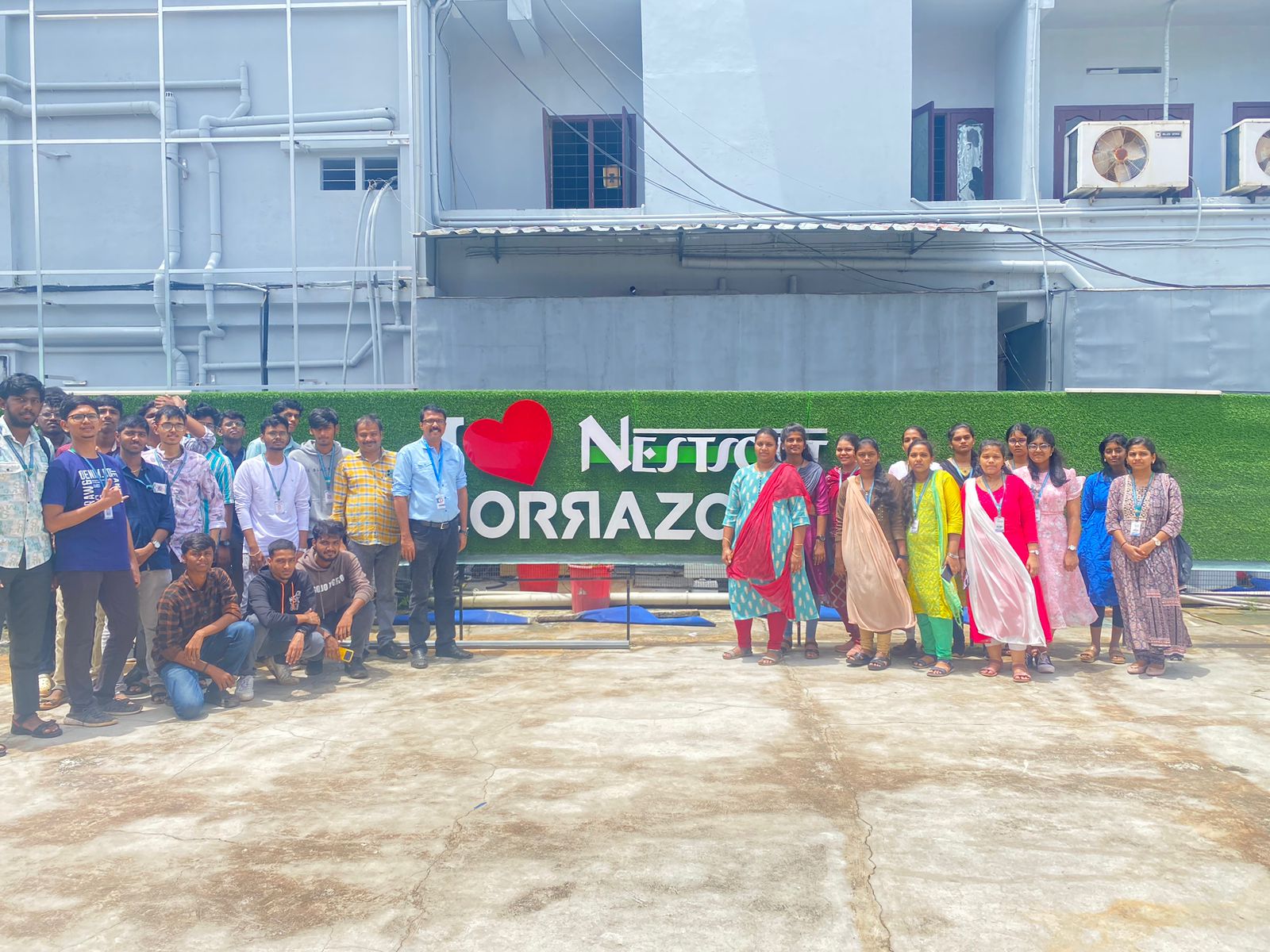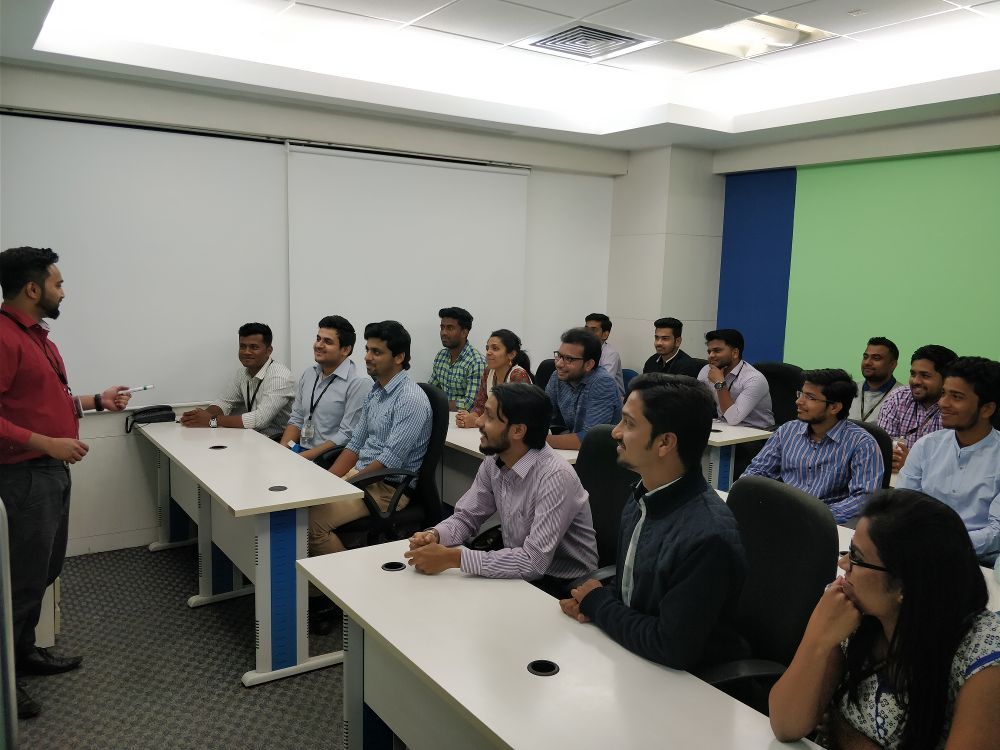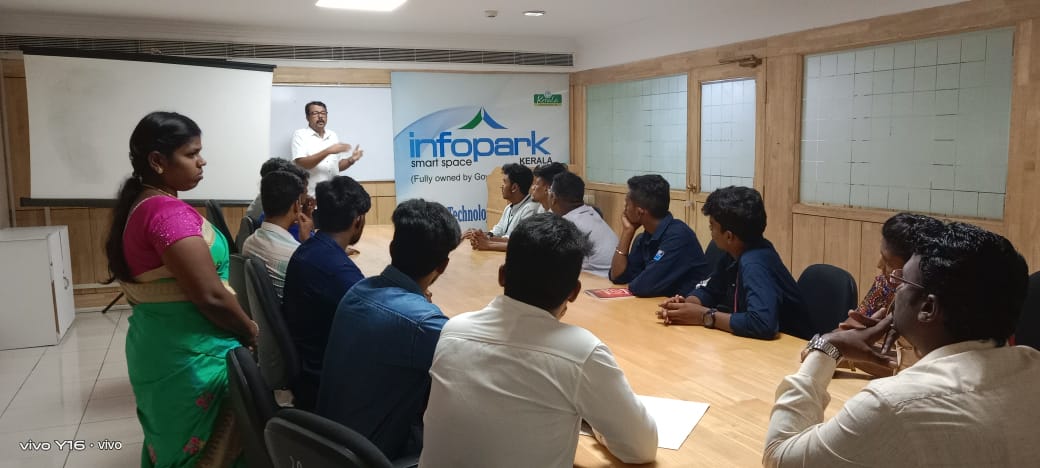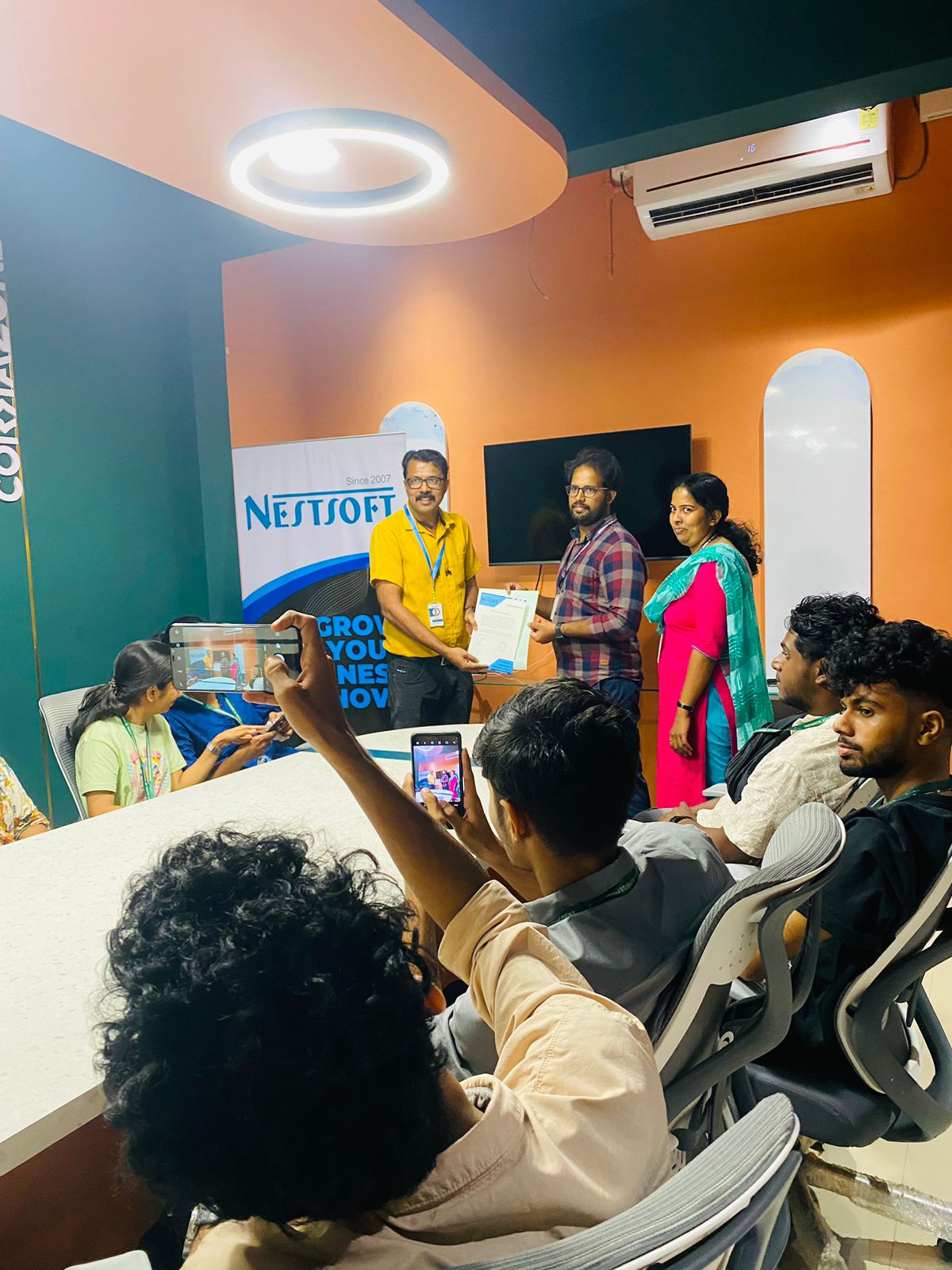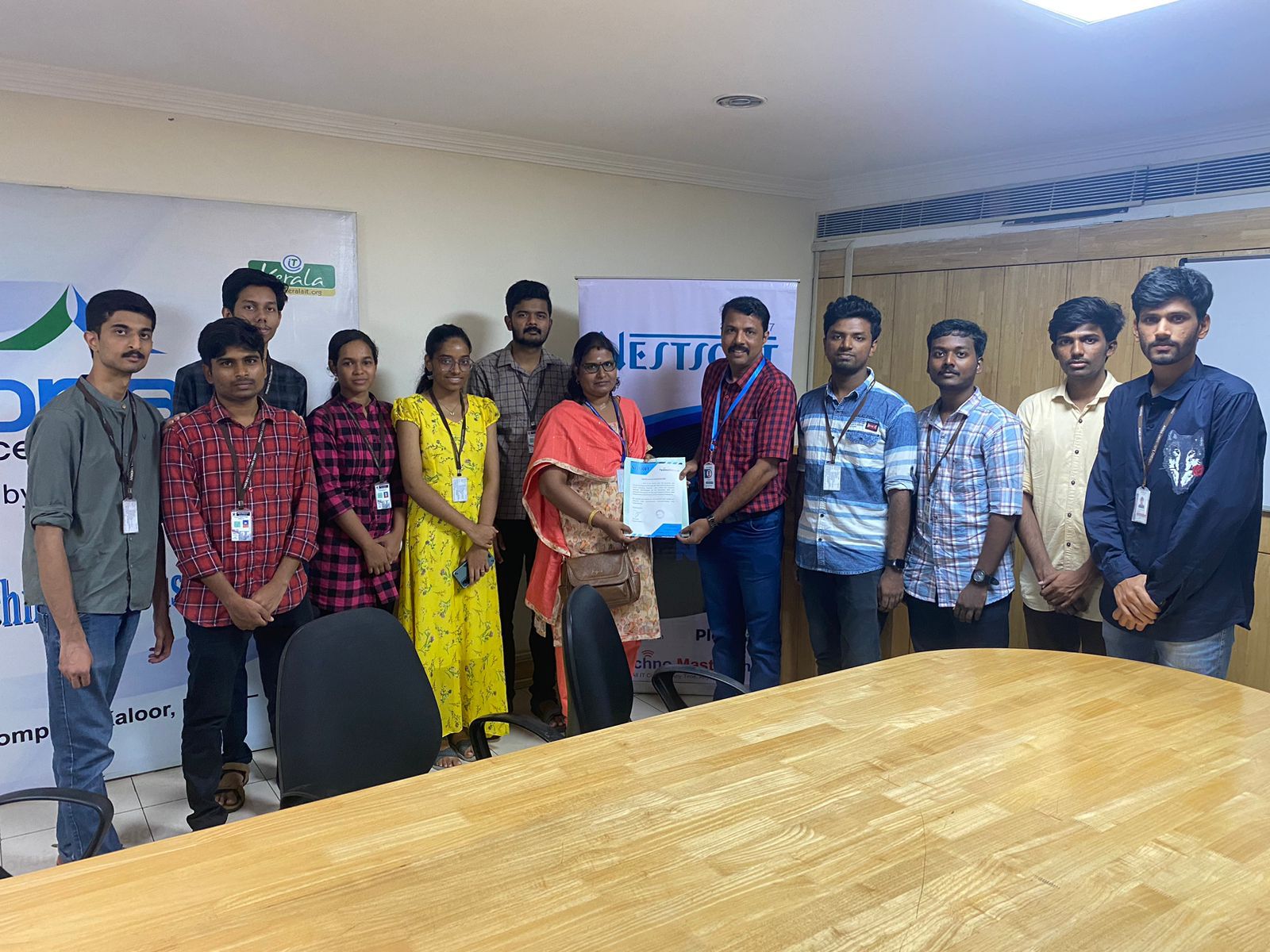Robotics Training by Experts
Our Training Process

Robotics - Syllabus, Fees & Duration
Robotics Training – Syllabus
-
What is Robotics? Scope & Applications
-
History and Evolution of Robotics
-
Types of Robots (Industrial, Service, Autonomous, Humanoid, etc.)
-
Future Trends in Robotics & AI
-
Introduction to Sensors & Actuators
-
Motors (DC, Servo, Stepper)
-
Power Supply & Circuit Design Basics
-
Microcontrollers (Arduino, Raspberry Pi, ESP32 overview)
-
Basics of C, C++ & Python for Robotics
-
Writing control programs for motors and sensors
-
Data acquisition and signal processing
-
Real-time debugging and testing
-
Arduino IDE & Hands-on Projects
-
Raspberry Pi: Linux setup, GPIO programming
-
Communication Protocols (UART, I2C, SPI, Bluetooth, Wi-Fi)
-
Building simple automation projects
-
Introduction to CAD (SolidWorks/AutoCAD basics)
-
Kinematics & Dynamics of Robots
-
Chassis Design & Fabrication
-
Assembling Robotic Components
-
Basics of AI & Machine Learning for Robotics
-
Computer Vision (OpenCV introduction)
-
Speech & Gesture Recognition in Robotics
-
IoT-enabled Robots (remote monitoring & control)
-
Line Following Robot
-
Obstacle Avoidance Robot
-
Pick & Place Robotic Arm
-
Drone & Autonomous Vehicle Basics
-
Human-Robot Interaction Concepts
-
Real-world robotics project design
-
Hands-on capstone projects (IoT Robot, Robotic Arm, AI-based Robot)
-
Industry case studies (manufacturing, healthcare, defense, automation)
-
Resume Building for Robotics Careers
-
Interview Preparation (Technical + HR)
-
Placement Assistance & Career Guidance
-
Freelance & Startup Opportunities in Robotics
-
Final Project Presentation & Evaluation
-
Certification of Completion (Industry Recognized)
-
Pathways to Higher Studies & International Opportunities
Module 1: Introduction to Robotics
Module 2: Basics of Electronics & Hardware
Module 3: Programming for Robotics
Module 4: Embedded Systems & Microcontrollers
Module 5: Robotics Design & Mechanical Concepts
Module 6: Artificial Intelligence & IoT in Robotics
Module 7: Advanced Robotics Applications
Module 8: Industry Projects & Case Studies
Module 9: Career Development & Placement Support
Module 10: Certification & Final Assessment
This syllabus is not final and can be customized as per needs/updates




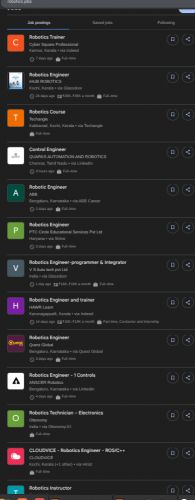
 Upon successful completion, learners will be awarded a recognized certification, adding value to their career prospects.
This training provides a comprehensive learning experience, starting with the fundamentals of robotics, electronics, and programming, and gradually progressing to advanced applications such as AI, IoT integration, and autonomous systems. Whether you aim to pursue a career in automation, AI, or embedded systems, this course provides the perfect launchpad to step into the fast-growing field of robotics. Learners will gain hands-on exposure to Arduino, Raspberry Pi, sensors, actuators, and microcontrollers, while developing real-world projects such as line-following robots, obstacle-avoidance robots, and robotic arms. Students will also receive mentorship from industry experts, guidance in building portfolios, and support in interviews through Technomaster’s placement assistance program. Robotics Training by Technomaster
The Robotics Training Program by Technomaster is designed to equip students, professionals, and tech enthusiasts with the essential skills to design, build, and program intelligent robots. With the increasing demand for automation and smart technologies, robotics has become one of the most promising career fields of the future. .
The program follows a practical, industry-oriented approach, combining theoretical knowledge with live projects to ensure participants are job-ready.
Upon successful completion, learners will be awarded a recognized certification, adding value to their career prospects.
This training provides a comprehensive learning experience, starting with the fundamentals of robotics, electronics, and programming, and gradually progressing to advanced applications such as AI, IoT integration, and autonomous systems. Whether you aim to pursue a career in automation, AI, or embedded systems, this course provides the perfect launchpad to step into the fast-growing field of robotics. Learners will gain hands-on exposure to Arduino, Raspberry Pi, sensors, actuators, and microcontrollers, while developing real-world projects such as line-following robots, obstacle-avoidance robots, and robotic arms. Students will also receive mentorship from industry experts, guidance in building portfolios, and support in interviews through Technomaster’s placement assistance program. Robotics Training by Technomaster
The Robotics Training Program by Technomaster is designed to equip students, professionals, and tech enthusiasts with the essential skills to design, build, and program intelligent robots. With the increasing demand for automation and smart technologies, robotics has become one of the most promising career fields of the future. .
The program follows a practical, industry-oriented approach, combining theoretical knowledge with live projects to ensure participants are job-ready.










































































